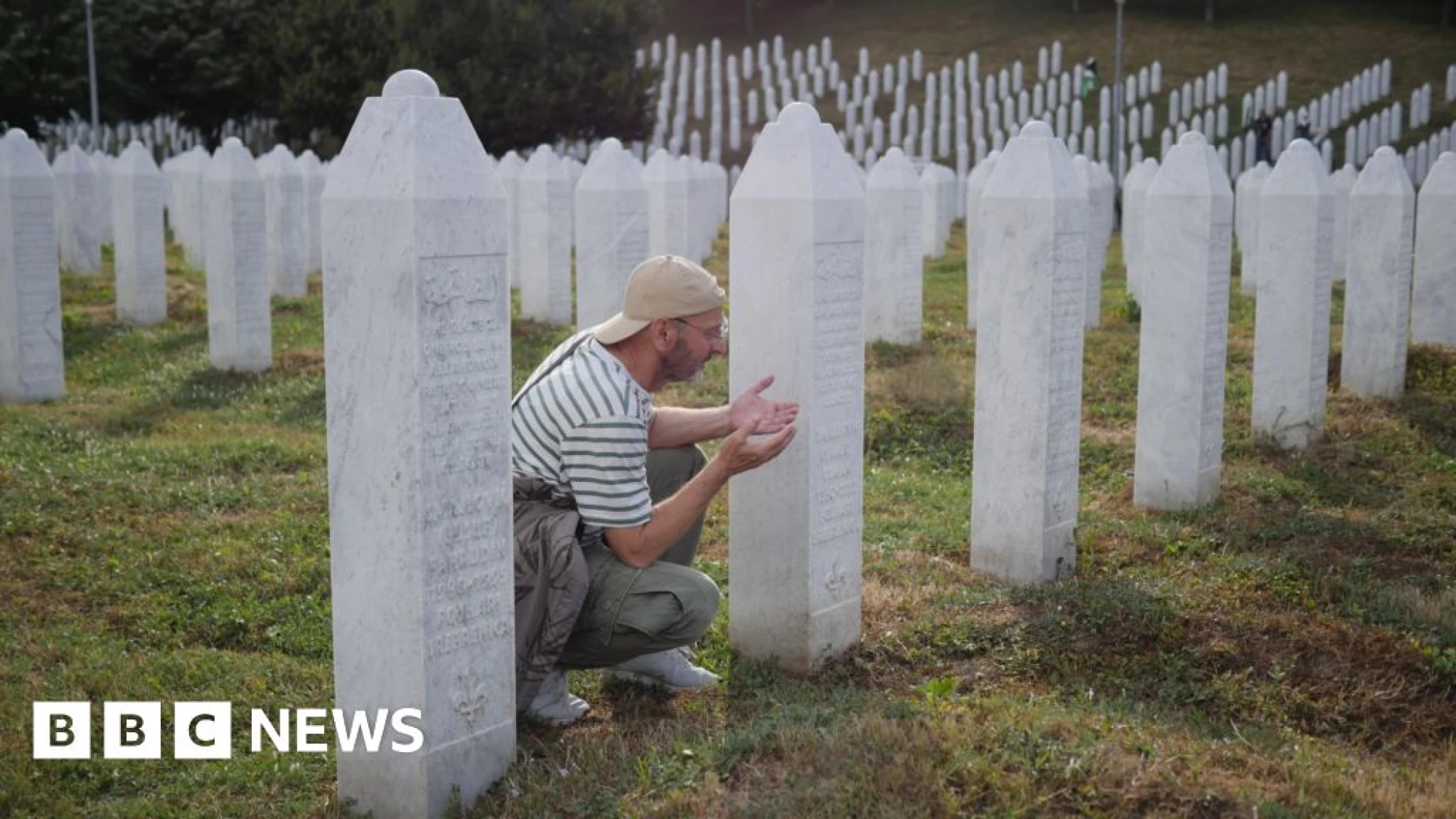'We're worried about our future': Srebrenica massacre's tensions still felt 30 years on

While communities in Sarajevo mark three decades since the massacre, denial of the genocide in on the rise.
Watch LiveBritish Broadcasting CorporationHomeNewsSportBusinessInnovationCultureArtsTravelEarthAudioVideoLiveHomeNewsIsrael-Gaza WarWar in UkraineUS & CanadaUKUK PoliticsEnglandN. IrelandN. Ireland PoliticsScotlandScotland PoliticsWalesWales PoliticsAfricaAsiaChinaIndiaAustraliaEuropeLatin AmericaMiddle EastIn PicturesBBC InDepthBBC VerifySportBusinessExecutive LoungeTechnology of BusinessFuture of BusinessInnovationTechnologyScience & HealthArtificial IntelligenceAI v the MindCultureFilm & TVMusicArt & DesignStyleBooksEntertainment NewsArtsArts in MotionTravelDestinationsAfricaAntarcticaAsiaAustralia and PacificCaribbean & BermudaCentral AmericaEuropeMiddle EastNorth AmericaSouth AmericaWorld’s TableCulture & ExperiencesAdventuresThe SpeciaListEarthNatural WondersWeather & ScienceClimate SolutionsSustainable BusinessGreen LivingAudioPodcastsRadioAudio FAQsVideoLiveLive NewsLive SportHomeNewsSportBusinessInnovationCultureArtsTravelEarthAudioVideoLiveWeatherNewslettersWatch Live'We're worried about our future': Srebrenica massacre's tensions still felt 30 years on2 days agoShareSaveGuy DelauneyBalkans correspondentShareSaveBBCMore than 8,000 Bosnian men and boys were killed by Bosnian Serb forces in Srebrenica in July 1995. Today remembrance is fraught The silence is shattered by a guttural scream. A group of people scrabble on the ground, sifting through the soil. One of them holds up a watch they have uncovered; another, a sandal.
The scene on stage at Sarajevo's War Theatre is uncomfortably familiar for the audience at the world premiere of the Flowers of Srebrenica. The play reflects the grim reality of the events not just of July 1995 – but the ensuing decades of unresolved grief and divisions in Bosnia and Herzegovina.
The Srebrenica massacre remains the most notorious war crime committed in Europe since World War Two. Bosnian-Serb forces overran Srebrenica in eastern Bosnia, where thousands of Bosniaks, who are mostly Muslim, had taken refuge, believing they were safely under the protection of the United Nations.
Instead, Dutch soldiers stood aside as Bosnian-Serb General Ratko Mladić directed his troops to place women and the youngest children on buses for transport to majority-Bosniak areas. Then, over the following days, he oversaw the systematic murder of around 8,000 people – most, but not all of them, men and boys.
Mladić's troops dumped the bodies in mass graves. But later, to cover up their crimes, they exhumed then reburied the remains in multiple sites.
https://www.bbc.com/news/articles/c4g2edzg2wlo
Rating: 5